General Motors recently closed the sale of the Opel and Vauxhall brands to France’s PSA Groupe. The sale has allowed PSA to become the second largest automotive conglomerate behind Volkswagen Group in Europe, something its executives are certainly proud of.
However, the greater strategy remains to be detailed. Where will Opel go from here? What becomes of Vauxhall? It’s a question Auto Express recently tackled, and it invites more exploration.
PSA is made up of Peugeot, Citroen, its more premium DS brand, Opel and Vauxhall. With some educated guesses, we may be able to understand where the brands go from here, especially if PSA wants to legitimately challenge VW, which spans from budget Volkswagens to high-end Lamborghinis and Audis.
The French automaker has previously said it plans to utilize Opel’s German heritage to its advantage. That is, some consumers simply won’t consider a French car. German engineering and build quality have always had a good ring. With that in mind, it’s possible PSA reshuffles its portfolio to make Citroen its budget brand, Peugeot a mid-market brand, DS a premium car contender and Opel as a German twist on the mid-market. Opel had continuously proved it can offer premium qualities at lower costs under GM anyway.
What about Vauxhall? The original opinion piece says it could replicate Jaguar’s turnaround, though Vauxhall has never been much of a premium name. What it does have is heritage, though, and it’s one of Britain’s surviving marques that build cars in the country. “Built in Britain” also means something to many consumers.
What remains true is the fact PSA’s brand sit much too close to one another as they stand, so it will take some serious repositioning is Vauxhall and Opel both plan to stick around. How PSA plans to manage that remains to be seen, but time will tell.

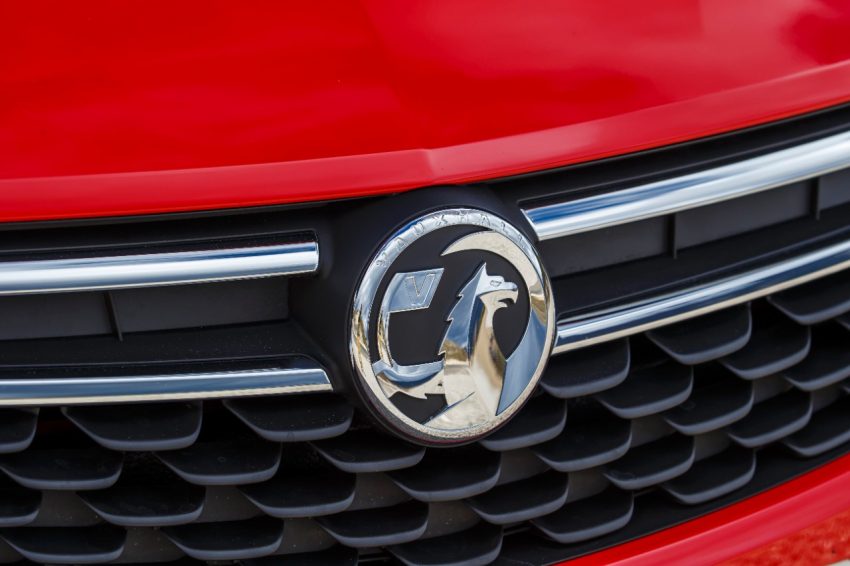

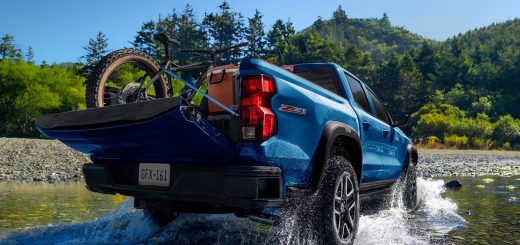
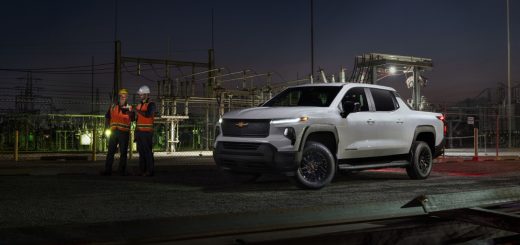
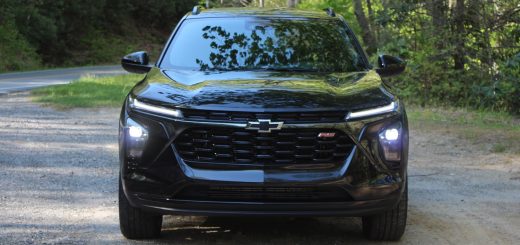


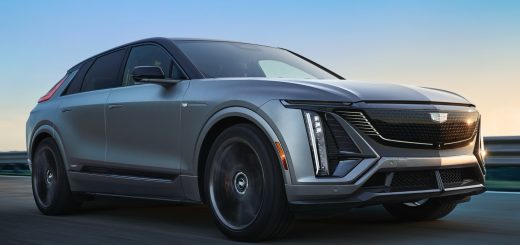
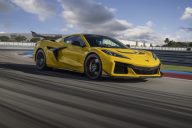



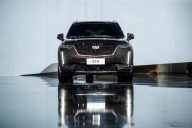

Comments
Vauxhall DOSENT need to find it’s niche, it’s already established. Class leading & competitive models covering a wide veraity of budgets & tastes with strong sales & brand loyalty. What Vauxhall needs is a 2 seater RWD sports car & a large coupe to complete it’s range, hopefully the economy’s of scale of 5 brands such niche cars such as these could become a reality.
Vauxhall will continue as Opel UK as it should. Maybe Vauxhall as a nameplate might do well in a former colony like India?
PSA lacks the funds for five unique brand. Europe lacks five volume segments for what will remain, free to heritage, mid market car brand.
Europe thives on economic nationalismwith everyone but the British buying domestic brands–example, Italy loves FIAT much like France sticks with PSA and Renault.
PSA will mimic old GM in that they will sell mechanically similar yet reskinned cars in an effort to exploit local tastes. PSA can now, for only 2B, crack the German and UK markets.
Globally Opel will be a VW rival and thrive. Maybe it can push upmarket in China and sit between VW and Audi like Buick.
Make no mistake that, like Renault, PSA is leaving behind its French roots. We will never see a Pueguet in the US same as Renault uses Nissan.
Steve2 You say everyone buys their own but the British, well I disagree, both Vauxhall & Ford to which are regarded as homegrown brands – Vauxhall is Ford started making cars in Trafford Park, Manchester in 1911 so again is considered domestic. Both brands have contributed not only bread & butter cars & performance cars that are held in affectionate memories. Many people have fond memories of the cars they had at various points in their lives. In addition to this the factories & people & family’s producing them along with commercial vehicles, buses, trucks, tractors, motorbikes, tanks & war effort etc. Both brands have successes at selling pretty much everything wether big or small & are desired & thus take pride in being Britain’s No1 & No2. Prestige manufactures obviously are also desired with Audi, BMW, Mercedes & home grown Jaguar desired. As for the rest one model usually sells ok & usually it’s a small hatchback or SUV. Britain is like most other places around the world in that it likes it’s homegrown products & there’s nothing wrong with that, hence why the European market is such a tough market to crack.
Its niche being unpopular and strangely underpowered vehicles.
Vauxhall has launched 7 new models in as many months. VXR8 GTS – R, Maloo – R, New Insignia, Crossland x, Viva Rocks, Vivaro Tourer Elite, Grandland x. Oh & btw Vauxhall used to be a upmarket brand over 100 years ago.
Vauxhall ellesmere port very old plant,will psa invest a large amount considering it wants to break even in a few years.Or will it drain what it has & cut in certain areas.Its plan to gain 6% profit in less than 10 yrs may go against a massive investment.Very top heavy management wise,for a small company (Vauxhall,employee wise) it has so many executives.The figure staff wise on plant would shock against the hourly paid track workers.Alot of tupeed workers could cause a problem (mitie voith etc) voith cleaners probally best paid cleaners in Europe (£15-£18hr plus shift pay & allowances,up to 45k yr) not bad for bin empty,mopping etc.Last time Bocum in Germany closed with ellesmere port hanging on,since that ellesmere port has produced the sports tourer whichas we speak sales/volume is dropping rapidly (one week off fully paid per month).Last I heard, was a deal will be put forward in 100days,so just over 80 days to go….
“Vauxhall ellesmere port very old plant”
Using your metrics Russelsheim is an even older plant! The fact that A plant has been there since 1963 doesn’t mean that everything located there dates from 1963. As for £45k P.A. cleaners I don’t know where you are getting your figures from.
Without favourable trade access to the EU Vauxhall and every other car plant in the UK is toast.
Been told the ellesmere port plant is falling apart at the seams.Also the work force have been through a lot over the years,threat of closure every 5yrs.Am I right they got a bail out last time.Maybe considered throwing money into an empty pit.Hope if news is cut backs they get a good deal (especially the 50+ executives who do a great job).Must agree a lot of dead wood needs getting shut.A forest fire would maybe help.
“Been told the ellesmere port plant is falling apart at the seams”
Then you were told wrong! I was there about a month ago and the factory was in great shape – clean, tidy and in great shape.
Yes it was, most people were talking about genitalia size
Go and read the comments to this article by “Auto Express”. Quite telling.
More later…
VW has numours brands & is successful so why shouldn’t PSA be any different, if it’s managed well & the cars are desirable it will work. There’s always going to be some overlapping of models & although it’s not ideal to compete with yourself it’s better than them going to another company, also the extra competition might make the market bigger.
“Auto Express” is appealing to British nationalism, but:
Opel and Vauxhall are the same brand when you look at the cars. Vauxhall is just the label put on Opel cars for sale in the four parts of the UKoGBaNI. Besides the labels, the cars are identical products, exiting from the same production chains.
I understand that this situation exists for four decades now. GM has decided this, probably thinking that Opel cars sell better on Great Britain when they appear as British cars.
But turning Vauxhall into an international brand which competes with the other brands of the PSA group not only on the island, but all over the world, and against Opel, too, is quite challenge. BTW, this would mean to open Great Britain for Opel labelled cars, too. PSA now has already four brands in their group, why should they try and artificially create a fifth one? I had never heard of Vauxhall until during the 2009 crisis, I began to look into Opel as part of GM instead of just solidarizing with the Opel workers fighting for their rights and wages.
Jaguar – Land Rover is a completely different story. Both have been internationally known brands, Jaguar especially by the famous E-Type, and Land Rover, well by those boxy cars rumbling thru African savannas and Himalayan valleys. Neither Ford nor BMW knew what to do with those brands compared to their own historic brands. Only after one of the super rich in Britains former colony took over Jaguar and Land Rover, making them one company, they had the space to develop without their owner caring about the possible competition to his traditional and main brands. The label Vauxhall is not in that position.
Further, when PSA’s Tavares said that he wanted Opel because there are people who think that a “German” car is better just be being German, he did not say that there are no people who would prefer a “French” car to all others. I for my part have always preferred French cars to German ones. Tavares obviously wants to exploit all such prejudices to the commercial advantage of the company he leads. But I don’t think that Sean Szymkowski’s speculations will turn out in reality.
Vauxhall has already found its niche market … it is the United Kingdom of Great Britain and Northern Ireland.
The UK is Opel/Vauxhall’s largest global market with 250,911 cars and 37,727 vans sold during 2016.
By contrast, in 2016 the DS brand achieved total sales of 76,500 vehicles across the whole world. I hope DS succeeds as a niche brand (I own a DS 5), but if PSA can justify DS as a stand-alone ‘luxury’ brand going forward, then it can certainly support Vauxhall as a UK only brand.
The sales numbers talk for themselves!
A niche Vauxhall needs to exploit is the demand for pick ups, both under GM & now PSA there’s no 4dr 5 seater pick up. They’d sell loads. Don’t look likely under PSA because they themselves don’t have a pick up.
No they won’t, people don’t buy pick ups in Europe.
Sure, there is a certain market for Pickups in Europe. Gardening, landscape modelling and street-cleaning services have a certain demand for it, because the pickup with its open, unproteced trunk allows direkt access to the tools of the trade, or throwing garbage on it, although the high board all around is an obstacle.
Generally, a pickup as replacement for a real passenger car is out of the question, because you can’t store anything in the open trunk which is accessible to all passers by.
Then there is the recent announcement (reflected in this blog) of the “X-Series” by Mercedes with their version of a Nissan Novara.
PSA is not GM. Tavares probably wants to have a relationship between PSA and Opel similar to that of Hyundai-KIA, Geely-Volvo or Renault-Nissan. Vauxhall is basically Opel UK and all of their cars, except for the Holden models sold under the Vauxhall brand in the UK, have German/Opel VIN numbers (W0L). There is no engineering or design facility in the UK either. Also the business plan for the turnaround of Opel including Vauxhall will be completely made by the Opel management in Germany, not by PSA in France! It would be naieve to believe the Germans will close any further German plants in favor other European plants, e. g. in the UK. The reason for the closure of the Bochum plant was just because GM and Vauxhall held secret agreements where the British workers agreed to work for less money than their German colleagues. I’m pretty sure in the near future Opel will go under its own brand name in the UK. No need for Opel anymore to continue this silly old school GM rebadging under the umbrella of PSA.
“Also the business plan for the turnaround of Opel including Vauxhall will be completely made by the Opel management in Germany, not by PSA in France! It would be naieve to believe the Germans will close any further plants in favor other European plants, e. g. in the UK”.
Whoever makes the business turnaround plan it will be PSA management that either approves it or not, be under no illusions about that. PSA has already stated that ALL plants will stand or fall on their merits and on that basis the 2 most efficient plants within the PSA Group in Europe are Glwice & Ellesmere Port.
Sure, the last word is spoken by th PSA managementor shareholders, since they are the sole owner of the “Opel Automobile GmbH” in Rüsselsheim, Germany, to which all Opel/Vauxhall automobile business has been transferred to by GM. There is no entity called “Vauxhall” outside of the assets owned by the “Opel Automobile GmbH”. This company has certainly one or more subsidiaries on the island, but their powers won’t go much beyond the distribution of automobiles produced in Opel owned factories all over Europe, labor relations of that distribution organization and the two factories facility management of the premise, all this under the oversight by Rüsselsheim.
@Frank K. re “It would be naieve to believe the Germans will close any further German plants in favor other European plants, e. g. in the UK. ”
But I would not exclude it either.
Closing one of the two factories on the island could damage the fiction of Vauxhall being a free wheelin’ British automobile manufacturer charting its own way in the world wide market of automobiles, and shutting a factory in any country will arouse lots of resistance by the workers movement, which might include official or non-official calls for a boycott.
We’ll see what Opel proposes to PSA, and what PSA thinks of it. Mind you, there are now two people from PSA on the Opel board of directors (Vorstand).
It is not unreasonable to think that total PSA group sales (incl. Opel-Vauxhall) across Europe for 2017 will bear resemblance to those achieved by the different brands in 2016, in which the biggest markets for all five brands were as follows:
– Peugeot – France, 335,884
– Vauxhall – United Kingdom, 250,955 (On this basis, who in their right mind would get rid of Vauxhall?)
– Opel – Germany, 243,792
– Citroen – France, 195,011
– DS – France, 28,081
These figures do not include commercial vehicle sales.
Up until 1981 both Opel and Vauxhall brands sold alongside each other across Europe. The model ranges had been merged back in 1975, starting with the Kadett/Chevette, Ascona/Cavalier, Rekord/Carlton, Senator/Royale, Commodore/Viceroy and finally Kadett/Astra Mk1. The Vauxhall brand was available in every country across Europe except for the then Federal Republic of Germany, and the brand was especially popular in Belgium, Netherlands and across the Scandinavian countries.
In the United Kingdom Vauxhall outsold Opel 20:1 and for most of continental Europe the reverse was true for Opel, hence the decision to keep the Vauxhall branding for the UK and Opel for the rest of Europe, despite the cars being ostensibly the same. It is also worth noting that at this time the Luton plant built the Cavalier and Carlton, with Ellesmere Port building the Chevette and Astra, the latter two also being exported to Europe and indeed Germany badged as Opel. In later years Luton also built and exported Opel Vectra, Frontera, Campo, Rascal, Arena and of course to this day Vivaro.
Now that GM has abandoned the Indian sub-continent, perhaps PSA should consider launching their ‘German’ range in this market under the guise of Vauxhall, a brand which will be very familiar to those visiting the UK from India, Pakistan, Bangladesh and Malaysia.
Here’s another thought … thanks to GM’s shortsightedness and stupidity, the Opel brand is ‘very damaged goods’ in Russia, since it was pulled from the market in 2015. History will show you that up until 1918, Vauxhall was the car of Russian Government, Royalty and Society. One hundred years ago Vauxhall was in the same league as Bentley and indeed the Vauxhall Prince Henry is widely acknowledged as being the world’s first true sports-car. History will also teach you that the railway stations of Moscow and St. Petersburg were/are some of the grandest buildings around. To this day, the word for railway station in Russian is pronounced VOXAL, the name for which was set by Tzar Nicholas II, himself a Vauxhall driver and race competitor and champion of the railway construction programme.
So, here’s a challenge for PSA Group … now that the Russian car market is back in double-digit growth, with GM’s Chevrolet now reduced to a single model (Niva 4×4), launch your ‘German engineering’ brand in Mother Russia as VAUXHALL – Job done!
Notice how the brands do well in the respective home countries, it’s a stroke of genius PSA group has a dominant presence in the biggest markets in Europe – Germany, UK & France.
Vauxhall and Opel are like Chevy and Pontiac to a more identical level.
Is it really worth the cost anymore in this very expensive market to market and make different emblems.
It would not be shocking to see a Vauxhall vanish in the name of keeping cost down.
Retaining cost moving forward for all mfg will be key to survival and here is one large cost savings.
Only brands like GMC that generate large incomes will be permitted to be redundant.
Scott, I’m not really sure of the point you’re trying to make here.
The cost of making 7 Vauxhall badges per car (grille, trunk, steering-boss and four wheel hubs) is no more than making 7 Opel badges. As for advertising, marketing, dealership branding, etc., here in the UK we speak, read and write English. Across Europe, Opel advertising and marketing is by necessity in 23 different languages, as is the case for other major manufacturers. There is no inherent saving in Opel-ising the UK.
As for GMC, a different front clip and badging is all that differentiates the vehicle from the equivalent Chevrolet.
The Sierra is far and away GMC’s best seller in the USA and probably accounts for 75% of the brand’s sales revenue and profit. The USA has a population of 323.1m against which 221,680 Sierras were sold in 2016. By contrast the UK has 60.5m people with Vauxhall shifting in excess of 250,000 units in that market during 2016.
Whilst GM Europe has collectively racked up huge losses this century, accounts show that the Vauxhall business in the UK has been profitable for 5 of the last 6 years, including 2016.
Clearly VAUXHALL, and its associated running costs, be they marketing, advertising, management, badging, branding, (heck – even cleaning as alluded to in an earlier comment!), IS NOT THE PROBLEM. Look to Europe!
@rocketman re
That would mean only that the sum of the costs of the markting and sales operation on the island plus transport costs to and on it, is especially cost-effective compared to the proceedings from sales in the country UKoGBaNI, England, Wales, Scotland and the six-county statelet in Ireland.
Since all other costs of development, central administration, all production sites all over Europe and imports from Korea as well as costs of production in other companies’ sites (Movano, small number of Vivaro, and Combo) plus income from production for (other) GM brands (Holden, Buick) has to be divided by each and every of the Opel/Vauxhall car sold on four continents as general costs per unit. The UK national market could not really do so much better than all other national markets.
BTW, by market share, Hungary was top in 2014 and Croatia followed UKoGBaNI on the foot.
I completely agree with the analysis by rocketman, but further to this scott what you have left out of your calculations is the massive costs associated with trying to establish Opel as a brand in the UK, something that has been tried twice and failed twice, and also the massive costs to dealers with new signage etc. Why replace an iconic British brand with 114 years of heritage with a German brand that already has an image problem across the whole of Europe?
Opel is not a mystery.
In this day and age were even much of Rolls Royce is mfg in Germany is telling on the cost involved.
England is not big enough to support mfg and even brands anylonger all on their own.
The cost of making the changes and the marketing takes away from the realized profits.
What little it would take to into Opel there would go away after a few years.
It is much like Holden as they too sold way too many cars to make building them from design to finish practical.
It is sad but the automotive market is ever going to evolve and there will be times major changes will come.
I will be shocked if 10 years Vauxhall will be around. It will be replaced by Opel or other PSA brands.
You can’t lose money forever.
Also today just making money is not enough. To sustain the future cutting cost is key and maximizing profits will be a key to the survival of most mfg.
The days mfg have 16 brands is coming to an end.
Comparing Vauxhall with Opel would be like comparing Toyota UK with Toyota. And like Observer7 already stated, Vauxhall is not seen seen as its own entity. It is nothing more than a distribution and manufacturing arm of Opel in the UK. If you don’t believe me then book a trip to the Rüsselsheim headquarters, and see the place where your beloved brand’s cars are actually being developed.
Nonetheless, the brand name “Vauxhall” helps sell, with the aura of one of the oldes automobile manufacturers in Great Britain, as all the contributions in this thread show. I do even believe, that hard core Brexiters as the Brexit minister David Davies actually are convinced that Vauxhall is a British automobile company, that is part of a “British automobile industry” which purportedly sells cars over the channel like “European” automobile makers export from the continent to Britain, while they are all just part of a continent wide integreated production process relying on “just in time” deliveries of parts from one factory to another.
Others don’t care and buy Nissan, Toyota, VW, Peugeot, Fiat, and everything else.
It is not up to me to counsel PSA about how to use the Opel and Vauxhall brands, I’ll just observing…
This is like betting on football.
I am a Browns fan since birth. I am loyal but I will not get on them to win the Super Bowl.
This a deal that needs to be done with the head not the heart. Setemental thinking will send you to the poor house.
Like here while a few die hardship decry the loss of Pontiac the reality is that once the dust settled few in the normal average Public noticed let alone cared.
Killing Vauxhall would set some off but most like many past British names will really care in a year or two.
It is not like they are setting profit or sales records there.
While it would be great to have 18 brands in every market that is going to come yo an end for many mfg. it is just getting too difficult to do right anymore.
Frank K and all other Europhiles, here in the UK anybody who knows anything about the auto industry is absolutely in no doubt that Vauxhalls are re-badged Opels designed and engineered in Germany and South Korea and built around the world, and we appreciate that and certainly don’t have a problem with it … honest! The UK is also the world’s fourth largest market for German engineered (not sourced) cars.
It’s all about national market preference. In Canada GMC trucks outsell Chevrolet trucks 2:1 … they are essentially all the same vehicles, just a different grille and badge. In the USA we have the reverse situation with Chevrolet trucks outselling GMC trucks 3:1 at least. Would an Opel Insignia sell better than a Buick Regal in these markets? I highly doubt it. Both Vauxhall in the 50’s and 60’s, and Opel in the 60’s and 70’s tried to crack the North American market and failed after 7 or 8 years.
The good folk in Australia and New Zealand want a Holden badge on their Astras and Insignias and Korean built Trax X (Mokka X) … GM launched Opel there 3 years ago and the brand didn’t even last a full year. Strangely the very same cars with a ‘roaring lion’ on the grille as opposed to a ‘blitz’ are selling much better!
If you want an absolute master-class lesson in how not to mess with local market branding, then look at the crazy situation in South Africa where in the space of 40 years GM’s infernal meddling with the local market took GM from its 30+ year reign in pole position to its current 7th place! Back in the day South African GM dealerships sold Chevrolet, Pontiac, Acadian, Holden, Opel, Vauxhall, Isuzu, GMC and Bedford trucks all under the same roof. Then the decision was taken to rationalize the range, dropping the US sourced models and re-badging all the Holdens, Opels, Vauxhalls and Isuzu pick-ups as Chevrolets. Nine years later it was change once again as everything was re-badged to Opel which actually made sense given that by that time all the models on sale were Opel based, notwithstanding the fact that South Africa has a cultural affinity with Germany. At the same time the Chevrolet pick-ups were re-badged back to Isuzu. Ten years later it was again time for big change with Chevrolet being re-introduced and Opel pushed to the background offering just a few niche models, albeit the Opel Corsa Utility being GM’s best seller. Isuzu thankfully remained untouched. Then someone had the bright idea of retaining Opel branding for the Corsa hatchback and sedan but re-branding the pick-up as the Chevrolet Corsa Utility (how to confuse people!). In the space of 6 months not only was the Corsa Utility no longer GM’s best seller, it had also dropped from 1st to 4th in the small pick-up segment! Earlier this year GM announced it was pulling out of South Africa at the end of 2017, so good-bye Chevrolet.
Isuzu has already committed itself to continuing production and with Chevrolet out the picture, I sincerely hope PSA partners with Isuzu, continuing manufacturing in South Africa and really pushes Opel (note, not Vauxhall) to the fore once again. The Isuzu KB pick-up is the 3rd best seller behind the Toyota Hilux and Ford Ranger, and Isuzu dominates the light, medium, and heavy truck sector there.
Whether it’s Buick in the USA, GMC in Canada, Holden in Australia, Opel in South Africa and Vauxhall in the UK, the locals know what badge they prefer on the front of their cars. And does it really matter whether it’s a blitz, a griffin, a roaring lion or a tri-shield on the grille, so long as the overall business is profitable, producing good product that consumers want and keeping workers gainfully employed.
What’s brexit got to do with it, I actually believe England is better in Europe but that’s only my option. Let’s leave politics & back to cars, Vauxhall is a English brand that’s a fact there’s no getting away from that. Vauxhall over it’s 114 year history has contributed much to Britain & will continue to do so. As mentioned before in a earlier post it’s a stroke of genius PSA is dominant in the big 3 European markets, my guess is they’d like to keep this dominance in the competitive European markets where generally each nation buys it’s own products. I have always liked Vauxhall’s & with the odd exception build the cars I like, you mention Nissan, Fiat, Toyota etc & everything else well they don’t do it for me & non of them do a car big enough to replace my large sporty saloon, a Quashqai, 500L or RAV4 just don’t float my boat.
BREXIT has everything to do with it. When the UK government do not get there cake and eat it approach the tariffs or / delays at the border will make Ellsmere Port uncompetitive and that will mean it is closed when the new Astra is due.
There are two issues discussed here:
a) the fiction of an independent entity “Vauxhall” which can decide itself “To Find Its Niche”, which is settled. Also that the “Vauxhall” and “Opel” branded cars are identical car models except for the label put on them (the Holdens imported as Vauxhall are a different case);
b) the use of the label “Vauxhall”
b-1: if it should and could be replaced completely by “Opel”, i.e. including in the country UKoGBaNI;
b-2: if the brand “Vauxhall” could or should be used to replaced the label “Opel” in certain other national markets outside of Britain;
b-3: if Vauxhall and Opel should be differntiated in actually two different brands, trying to create different looks and for different expectations of buyers.
Observer 7, I for one concur with the questions you pose and these should be foremost on Tavares and PSA’s list when considering Opel-Vauxhall. In my regard the answers are:
a). Vauxhall cannot stand-alone as an independent entity, not unless PSA sells the brand (but not the associated engineering IP) to the Chinese. By the end of 2017, sadly there will be no more ‘real’ Holden’s on which to place the Vauxhall badge.
b.1.). In respect of UKoGBaNI, I honestly believe a brand change to Opel would see a significant shrinkage (circa 30+ %) in sales and market share. Consumers in major global markets are typically nationalistic when it comes to supporting ‘home’ brands, hence Renault leads in France, VW in Germany, Skoda in Czech and Slovakia, Volvo in Sweden, Ford in USA and UK, Toyota in Japan, etc. Where there are multiple ‘home’ brands this trend still follows, eg. in France we have Renault, Peugeot, Citroen on the podium; In Japan, Toyota, Honda, Nissan, etc. Strangely in the UK Ford is still viewed as British even though no cars or vans have been built here for more than a decade. In this vein, Vauxhall is therefore viewed as Britain’s second home brand.
b.2.). I think Vauxhall should be considered for certain new markets particularly where there is a British affinity (ie. Asian sub-continent and RHD Commonwealth countries). I do not include South Africa, Botswana and Namibia, as there is a loyal Opel following there, despite GM’s best efforts to thwart Opel success! And seriously, perhaps Russia is an option to introduce Vauxhall as the ‘British car with German technology’. I am often in Russia on business and there were for sure a lot of very angry and disgruntled Opel owners following GM’s withdrawal.
b.3.). From 1975-1982, Vauxhalls were substantially differentiated from equivalent Opels, with sheet-metal changes to the front and rear facias, bumper style, number-plate locations, even dashboard designs, let alone different model names, with Vauxhall retaining its own in-house design studio. However, upon the introduction of the Rekord E2 in 1982, the cars became indistinguishable apart from badging as each model range changed thereafter. By 1995 with the introduction of Omega B, all Opel and Vauxhall models bore the same names as well, eg. Cavalier became Vectra and Carlton became Omega. Clearly the cost of substantial sheet metal changes for circa 250,000 sales p/a could no longer be supported or justified. In this respect I think the Peugeot-Citroen differentiation is starting to work better, with Citroen increasingly appealing to a funkier youth vibe, and Peugeot being somewhat more conservative.
As for the stand-alone DS brand, whist it’s still early years, I can’t see it surviving much beyond 2020, unless annual sales grow to 300,000+, which I sincerely hope is achievable … probably will be heavily reliant on success in the Chinese market.
Observer7 why should anything need to change, if it’s not broken which it isn’t why fix it.
Exactly. That’s why I listed only the issues which are being debated in relation with this blog entry.
I hope that my words did not lend themselves to be misunderstood.
No advocacy of any course of action from my part.